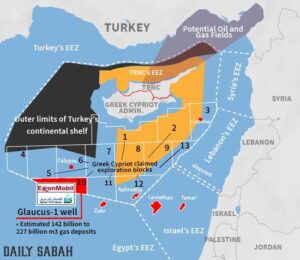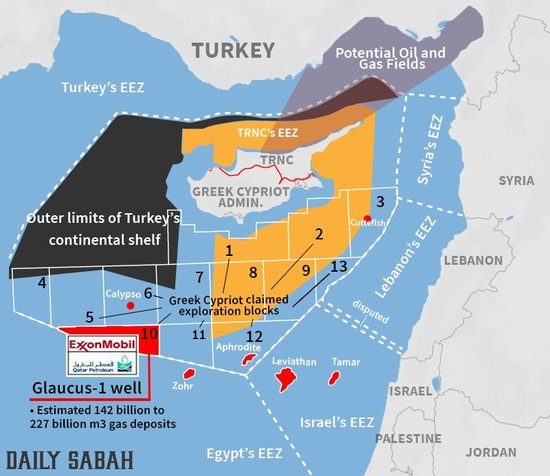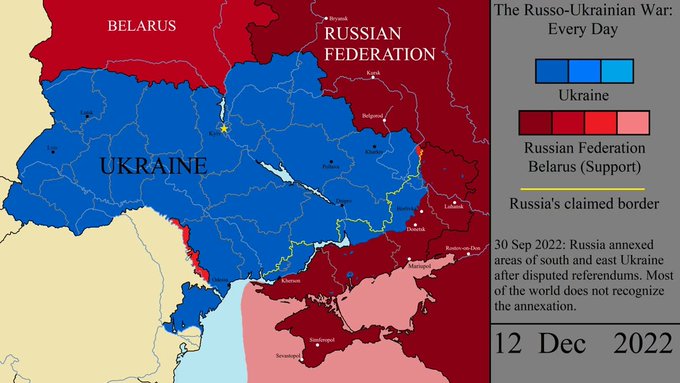More Fuel to the Fire? Gas Discoveries and Political Implications in Cyprus
Early last year, Exxon Mobile announced a discovery of gas fields near Cyprus. The sudden, albeit only projected, wealth has put people thinking about the future of the island. Among other topics – the political future of Cyprus. Would a possible hydrocarbon wealth unite the divided island? Or will money make both sides dig even deeper trenches as business partners, or families, of all eras and locations have experienced?
The Cyprus problem has been on the radar since 1960s– if we talk about the conflict after Cyprus’ independence from British rule. The first crisis erupted in 1963, a mere three years after independence. The other major dates in the conflict timeline are the 1974 Turkish invasion, 1983 the declaration of independence of Northern Cyprus, and the 2004 rejection of the Annan Plan. There have been times of very icy relations as well as thaws and convergence. If the gas find turns out to be commercially successful, then it could add another twist to events.

Exxon Mobile’s natural gas discovery off Cyprus. Source of the image: Daily Sabah.
In fact, there already have been political implications. The European Union has handed travel bans to Turkish nationals who have been involved in explorations. As well as being a Cypriot issue, Turkey itself has claims concerning economic zones in the Mediterranean. But, before we discuss the options for each party regarding the unifications, let’s take a look at European energy consumption and imports.
Natural gas is the second largest source of energy for Europe after oil and petroleum products. About 582 million TOE (tons of oil equivalent) of oil and around 400 million TOE of natural gas were consumed in the EU in 2017. Production of natural gas in Europe is decreasing and its imports are increasing. In fact, only renewable energy production has increased in the Union, becoming the energy source with largest production share. This means that, most of its hydrocarbons are imported.
Russia is the main source of European energy– around 30% of oil and 40% of natural gas comes from our eastern neighbour. Latest Exxon find is estimated between 5 trillion to 8 trillion cubic feet. One million tons of oil equivalent of energy is around 39 billion cubic feet of natural gas. This is, therefore, around half of European yearly consumption if we take the upper ceiling into account… probably not enough to turn Cyprus into new Kuwait, but enough to create anxiety and build up hopes. And it is definitely enough to build up political tensions. So, what could be the implications to different actors in the region?
Turkey has joined the experimental drilling, trying to find gas of its own…, which is understandable, it imports gas, and possible finds can offer an alternative. Turkey’s main problem is that there is no mutually accepted boundary between the Exclusive Economic Zones (EEZ) of itself and the Republic of Cyprus. This has led to liberal interpretations of international law about who has rights to drill where. Also, Turkey recognises licences issued by Northern Cyprus… and as we know, nobody else does. This inevitably leads to overlapping claims and licensing. The logical results are growing tensions. We have to put it into larger context of cooling relations between Turkey and the EU where the conditionality has stopped working. Turkey seems to be distancing itself from Western institutions… or, at least following different policies to the EU and NATO.
The Republic of Cyprus has tried to ease tensions by creating a wealth fund to benefit both communities if the potential of gas reserves at some point realises. But, any such fund would still be under Republic’s control and probably not satisfy Turkey’s demand to include TRNC in more substantial capacity. It seems that Cyprus will face three sorts of problems regarding gas. First, and foremost, there is Turkey and TRNC. With the former firmly supporting the latter, there seems to be no easy solution to possible tensions. Cyprus enjoys the support of Greece and the EU, but if Turkey drills in waters around the island’s northern coast, there is not much the Republic can do. (Most of controversial drilling is done in the south though). The second issue is a relatively light one, namely, Europe’s pursuit of a carbon neutral economy. Renewables would be the energy of choice, but it is hard to imagine absolute abandoning of natural gas. Though a fossil fuel, its carbon footprint is smaller than that of petrol or coal, and there probably will be quite healthy demand in Europe. The third issue is that they do not have the gas yet. It is far from being commercially viable and there is no certain knowledge of capacities. If Greek Cypriots at some point have the gas then recent history (or one particular event – the Annan Plan) shows, that they are not too willing to share the benefits with Turkish Cypriots.
TRNC finds itself between a rock and a hard place. On the one hand, ties with Turkey are absolutely vital to the survival of the entity. On the other, potential economic benefits from the gas –and therefore closer relations with the Republic and the EU– are extremely appealing. This is also visible in domestic politics, where things seem to lean towards Turkey. Gas is only one of several issues that have risen concerns about reunification. Turkish continued military presence, manifest identity politics from either side entrenching island’s division are probably much more important. And TRNC after all is supposedly the one that has to make more concessions for reunification.
Overall, the gas finding does have political implications, but even more importantly, this seems to fuel the tensions. Frictions between Turkey and Cyprus keep the Turkish Cypriot community in between. They are the ones who depend largely on Turkey, and these ties must be severely loosened. Otherwise there will be no reunification in foreseeable future with, or without, potential hydrocarbon riches.
Author: Raul Toomla






